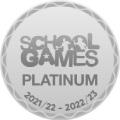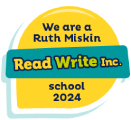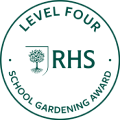Geography
Intent
Wistaston Academy endeavours to create a love for Geography in all children. Geography intends to inspire a pupil’s curiosity and fascination about the world and its people that will remain with them for the rest of their lives. Geography is, by nature, an investigative subject which develops an understanding of concepts, knowledge and skills. We believe that Geography helps to provoke and provide answers to questions about the physical and human features of the world. Lessons aim to promote children’s interest and understanding of diverse places, people, resources and natural and human environments, together with a deep understanding of the Earth’s key physical and human processes. Our curriculum is designed to develop knowledge and skills that are progressive, as well as transferrable, throughout their time at Wistaston Academy and also to their future education and beyond.
We have designed our inclusive Geography curriculum based on the 2014 National Curriculum with the intent that our pupils will:
- Develop contextual knowledge of the location of globally significant places.
- Understand the processes that give rise to key physical and human geographical features of the world.
- Are confident in the geographical skills needed to: collect and analyse data gathered through fieldwork; interpret a range of sources of geographical information, including maps and globes; and communicate geographical information in a variety of ways.
Wistaston Academy encourages children to develop a great knowledge of the world, as well as understanding the importance of their place in it. If children are passionate about the world that they live in, perhaps one day they can be the ones who make a difference in it.
Implementation
At Wistaston Academy, the progression of skills is set out in order to build and develop the following:
- Geographical knowledge: the UK and local area; the world and continents
- Geographical understanding: physical and human themes; understanding places and connections
- Geographical skills and enquiry: map and atlas work; fieldwork and investigation
The curriculum is led and overseen by the Geography lead, who works alongside class teachers to plan, monitor and continually evaluate the Geography taught at WA in order to ensure it is effective, exciting and continually improving.
The curriculum at WA is implemented through:
- Units which comprise of well planned, exciting and coherent sequences of lessons tailored specifically for our children
- A wide variety of enrichment opportunities linked to the topic, including external visits and visitors to the school.
- Lessons and experiences which are specifically tailored to be relevant to our local community
- Lessons which draw upon and reinforce skills learnt in other subjects
- Lessons which promote a love of reading through the use of high-quality texts and exciting reading opportunities
- Texts that are appropriately chosen to ensure the knowledge being taught relates to the core purpose of the lesson, building on pupils’ prior knowledge and vocabulary from previous reading.
- Regular feedback from teachers which not only addresses misconceptions but also deepens, challenges and supports learning
- The use of entry quizzes and end of unit assessments to track progress
- Lessons and enrichment opportunities which offer lots of chances to discuss a wide range of sources
- A strong focus on Tier 2 and 3 vocabulary which is taught within the unit, displayed in the classroom and consolidated wherever relevant
- Children have access to a variety of resources, such as globes, maps, and a tailored map reference book (including the school and local area)
The curriculum is implemented differently across the Key Stages to reflect the needs of the children:
- EYFS - Geography is embedded into EYFS within whole class inputs and the provision. Learning is completed through capturing the children’s interests, relating it to personal experiences and allowing exploration. Children are introduced to the foundations of geographical skills and knowledge taught through Understanding the World: The World and Communication and Language: Speaking. We encourage the early development of geographical skills by using maps and globes to discover places in the United Kingdom and the North and South Pole.
- In KS1 we offer a holistic curriculum provided by topic-based learning which is designed to stimulate children’s interests and help them internalise their learning. Geography is taught through half-termly topics. At this stage, pupils begin to develop their knowledge about the world, the United Kingdom and their locality. Children will begin to learn about the human and physical geographical features of the world and their importance. Locational knowledge will begin to develop at this stage as children continue to study their local area in great depth and will broaden their place knowledge by studying a coastal region of the UK and exploring its geographical features on an educational visit. Children will also develop their understanding of geographical similarities and differences in the world.
- Geography in KS2 is taught discretely. Each year group from Years 3 to 6 teach three Geography topics per year. At this stage, pupils extend their knowledge and understanding beyond the local area to include the United Kingdom, Europe and North and South America. This includes the location and characteristics of a range of the world’s most significant human and physical features. Pupils develop their use of geographical knowledge, understanding and skills to enhance their locational and place knowledge. In Upper KS2, children’s geographical skills and understanding will continue to develop as they study changes and developments in the UK and the wider world. They will learn about global trade links, energy production, the oceans, climate change and how our world will look in the future. The concept of sustainability is important within these areas of learning.
Impact
- Children will be enthusiastic about and enjoy Geography lessons through an enriched curriculum
- Children will acquire the key geographical knowledge, understanding, skills and attitude needed to prepare them for the next steps of their educational journey.
- Children will develop a sound and coherent understanding of Geography of the United Kingdom and the wider world.
- Children will become increasingly critical and analytical within their thinking, making informed and balanced judgements based upon their knowledge of the world.
- Children will have a further understanding of Geography on a local and global level
- Children will develop a deep knowledge, understanding and appreciation of their local area and its place within the wider geographical context.
- Children will develop enquiry skills to pursue their own interests and further questions within a topic
- Over their time at Wistaston Academy, children will have encountered and participated in a wide range of visits, visitors and other experiences
- Children will also become increasingly aware of important features of the world they live in.
- Where applicable, enrichment activities and fieldwork will enhance children’s life skills, life experiences and cultural capital.
- Children will make connections between what they have previously learned and what they are currently learning which will embed Geography knowledge in their long-term memory
- Disadvantaged pupils and pupils with SEND achieve the best possible outcomes in Geography
Within Geography, reading is promoted widely and often leading to fluency, comprehension and enjoyment.





